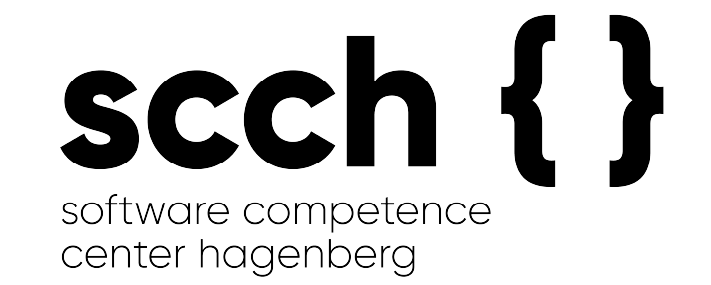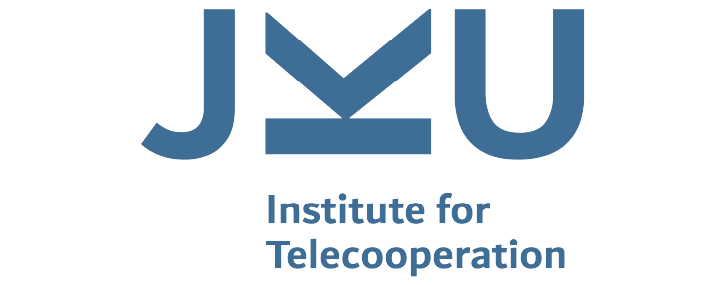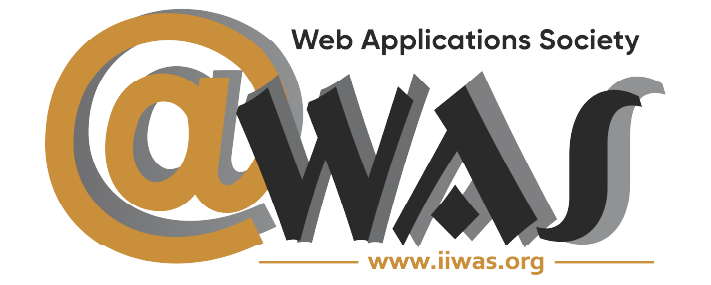DaWaK 2024
Papers submission: https://dawak2024.iiwas.org
IMPORTANT DATES
- Paper submission deadline: 7 April 2024 <<<FIRM & FINAL>>>
- Notification of acceptance: 10 May 2024
- Camera-ready copies due: before 10 June, 2024 (SHARP)
- Authors registration deadlne: before 10 June 2024 (SHARP)
- Conference days: 26-28 August 2023
PUBLICATION
All accepted conference papers will be published in a volume of "Lecture Notes in Computer Science" (LNCS) by Springer. LNCS volumes are indexed in Scopus; EI Engineering Index; Google Scholar; DBLP; etc. and submitted for indexing in the Conference Proceedings Citation Index (CPCI), part of Clarivate Analytics’ Web of Science. TOP papers, after further revisions, will be invited for publication in a SPECIAL ISSUE of DATA & KNOWLEDGE ENGINEERING (DKE) (Approved)
SCOPE
DaWaK conference is a high-quality forum for researchers, practitioners and developers in the field of Big Data Analytics, in a broad sense. The objective is to explore, disseminate and exchange knowledge in this field through scientific and industry talks. The conference covers all aspects of DaWaK research and practice, including data lakes, database design (data warehouse design, ER modelling), big data management (tables + text + files), query languages (SQL and beyond), parallel systems technology (Spark, MapReduce, HDFS), theoretical foundations and applications, text and data mining techniques, and deep learning. The conference will bring together active researchers from the database systems, cloud computing, programming languages and data science communities worldwide.
Main topics include:
- Theoretical models for extended data warehouses and big data
- Conceptual model foundations for big data
- Modelling diverse big data sources
- Parallel processing
- Parallel DBMS technology
- Distributed system architectures
- Scalability and parallelization using Map-Reduce, Spark, and related systems
- Query languages
- Query processing and optimization
- Semantics for big data intelligence
- Data warehouse and data lake architectures
- Pre-processing and data cleaning
- Integration of data warehousing, OLAP cubes, and data mining
- Polystore and multistore architectures
- NoSQL storage systems
- Cloud infrastructures for big data
- Metadata for big data frameworks
- Big data storage and indexing
- Big data analytics: algorithms, techniques, and systems
- Big data quality and provenance
- Big data search and discovery
- Big data management for mobile applications
- AI/ML for Big data analytics (text, time series, spatio-temporal, graph)
- Analytic workflows
- Graph analytics
- Analytics for unstructured, semi-structured, and structured data
- Analytics for temporal, spatial, spatio-temporal, and mobile data
- Analytics for data streams and sensor data
- Real-time/right-time and event-based analytics
- Privacy and security in analytics
- Data visualisation
- Big data application deployment
- Data science products
- Novel applications of text mining for big data
- Machine Learning: auto AI, deep learning applications
- AI/ML for data engineering, management, and analytics
SUBMISSION GUIDELINES
Authors are invited to submit original research contributions or experience reports in English. DaWak will accept submissions of both short and full papers.
- Short papers: up to 6 pages on preliminary work, vision papers or industrial applications
- Full papers: up to 15 pages (including references and appendixes). Full papers are expected to be more mature, contain more theory or present a survey (tutorial style) of some hot or not yet explored topics.
Papers exceeding the page limit or deviating from the formatting requirement are desk rejected.
Submitted papers will be carefully evaluated based on originality, significance, technical soundness, and clarity of exposition. Duplicate submissions are not allowed and will be rejected immediately without further reviewing.
Authors are expected to agree to the following terms: "I understand that the submission must not overlap substantially with any other paper that I am a co-author of or that is currently submitted elsewhere. Furthermore, previously published papers with any overlap are cited prominently in this submission."
Questions about this policy or how it applies to a specific paper should be directed to the PC Co-chairs
SUBMISSION PROCEDURE
Authors should first consult Springer’s authors’ instructions and use the proceedings templates, either for LaTeX or for Word, for the preparation of their papers.
Papers submission will be managed using HotCRP. To submit a paper, create an account at (https://dawak2024.iiwas.org) or sign in if you already have an account. To create an account, you only need to enter a valid email address. You will receive an email with a link to change the password and fill in your name, affiliation, etc., You can start the submission process by clicking on "new submission".
IMPORTANT!! : We strongly advise using an official email address. If you're using public email services like Gmail, Yahoo, Outlook, etc., please make sure to add (dawak2024@iiwas.org) to your contacts before registering. If you encounter any issues, please reach out to (dawak2024@iiwas.org).
ACCEPTED PAPERS
Authors of all accepted papers must sign a Springer copyright release form. Papers are accepted with the understanding that at least one author will register for the conference to present the paper.
COMMITTEE
Program Committee co-Chairs
• Robert Wrembel, Poznan University of Technology; Interdyscyplinary Centre for Artificial Intelligence and Cybersecurity, Poland
• Silvia Chiusano, Polytechnic University of Turin, Italy
Program Committees:
• Abhishek Santra, University of Texas at Arlington, USA
• Alberto Abello, Universitat Politècnica de Catalunya, Spain
• Alejandro Maté, University of Alicante, Spain
• Andrea Kő, Corvinus University of Budapest, Hungary
• Anton Dignös, Free University of Bozen-Bolzano, Italy
• Benkrid Soumia, Ecole Nationale Supérieure d’Informatique, Algeria
• Besim Bilalli, Universitat Politècnica de Catalunya, Spain
• Boris Novikov, Finland
• Carlos Ordonez, University of Houston, USA
• Carson Leung, University of Manitoba, Canada
• Christos Doulkeridis, University of Piraeus, Greece
• Claudia Diamantini, Università Politecnica delle Marche, Italy
• Cristina Aguiar, Universidade de São Paulo, Brasil
• Darja Solodovnikova, University of Latvia, Latvia
• Dimitris Sacharidis, Université libre de Bruxelles, Belgium
• Dimitri Theodoratos, New Jersey Institute of Technology, USA
• Ela Pustulka, University of Applied Sciences and Arts Northwestern, Switzerland
• Elisa Quintarelli, Università di Verona, Italy
• Emanuele Storti, Università Politecnica delle Marche, Italy
• Enrico Gallinucci, University of Bologna, Italy
• Fadila Bentayeb, Universite Lyon 2, France
• Franck Ravat, IRIT, Université de Toulouse, France
• Frank Höppner, Ostfalia University of Applied Sciences, Germany
• Genoveva Vargas-Solar, CNRS, LIRIS, France
• Günther Specht, University of Innsbruck, Austria
• Isabelle Comyn-Wattiau, ESSEC Business School, France
• Jaroslav Pokorný, Charles University in Prague, Czech Republic
• Jens Lechtenbörger, University of Muenster, Germany
• Jérôme Darmont, Universite Lyon 2, France
• Jorge Bernardino, Polytechnic Institute of Coimbra, Portugal
• Jun Miyazaki, Tokyo Institute of Technology, Japan
• Kamel Boukhalfa, USTHB University, Algeria
• Karen Davis, Miami University, USA
• Kazuo Goda, The University of Tokyo, Japan
• Ladjel Bellatreche, LIAS/ENSMA, France
• Lars Ailo Bongo, University of Tromsø, Norway
• Laurent D'Orazio, Univ Rennes, CNRS, IRISA, France
• Lena Wiese, Fraunhofer Institute for Toxicology and Experimental Medicine, Germany
• Leonidas Fegaras, University of Texas at Arlington, USA
• Luca Gagliardelli, University of Modena and Reggio Emilia, Italy
• Maik Thiele, HTW Dresden, Germany
• Marcin Gorawski, Silesian University of Technology, Poland
• Marco Angelini, APIENZA University of Rome, Italy
• Markus Endres, University of Passau, Germany
• Matteo Francia, University of Bologna, Italy
• Matteo Golfarelli, University of Bologna, Italy
• Mirjana Ivanovic, University of Novi Sad, Serbia
• Olivier Teste, IRIT, France
• Omar Boussaid, Universite Lyon 2, France
• Oscar Romero, Universitat Politècnica de Catalunya, Spain
• Patrick Marcel, University of Orléans, France
• Pawel Boinski, Poznan University of Technology, Poland
• Pedro Furtado, University of Coimbra / CISUC, Portugal
• Sana Sellami, Aix Marseille University, France
• Sandro Bimonte, INRAE, France
• Selma Khouri, Ecole Nationale Supérieure d'Informatique, Algeria
• Sofian Maabout, LaBRI, University of Bordeaux, France
• Soror Sahri, Université de Paris, France
• Soumyava Das, Teradata Lab, USA
• Stephane Bressan, National University of Singapore, Singapore
• Stephane Jean, University of Poitiers, ISAE-ENSMA, LIAS, Poitiers, France.
• Sven Groppe, University of Luebeck, Germany
• Syed Muhammad Fawad Ali, Accenture, Germany
• Sylvio Barbon Junior, University of Trieste, Italy
• Szymon Wilk, Poznan University of Technology, Poland
• Witold Andrzejewski, Poznan University of Technology, Poland
• Yinuo Zhang, Teradata, USA
• Yong Hwan-Seung, Ewha Womans University, South Korea





